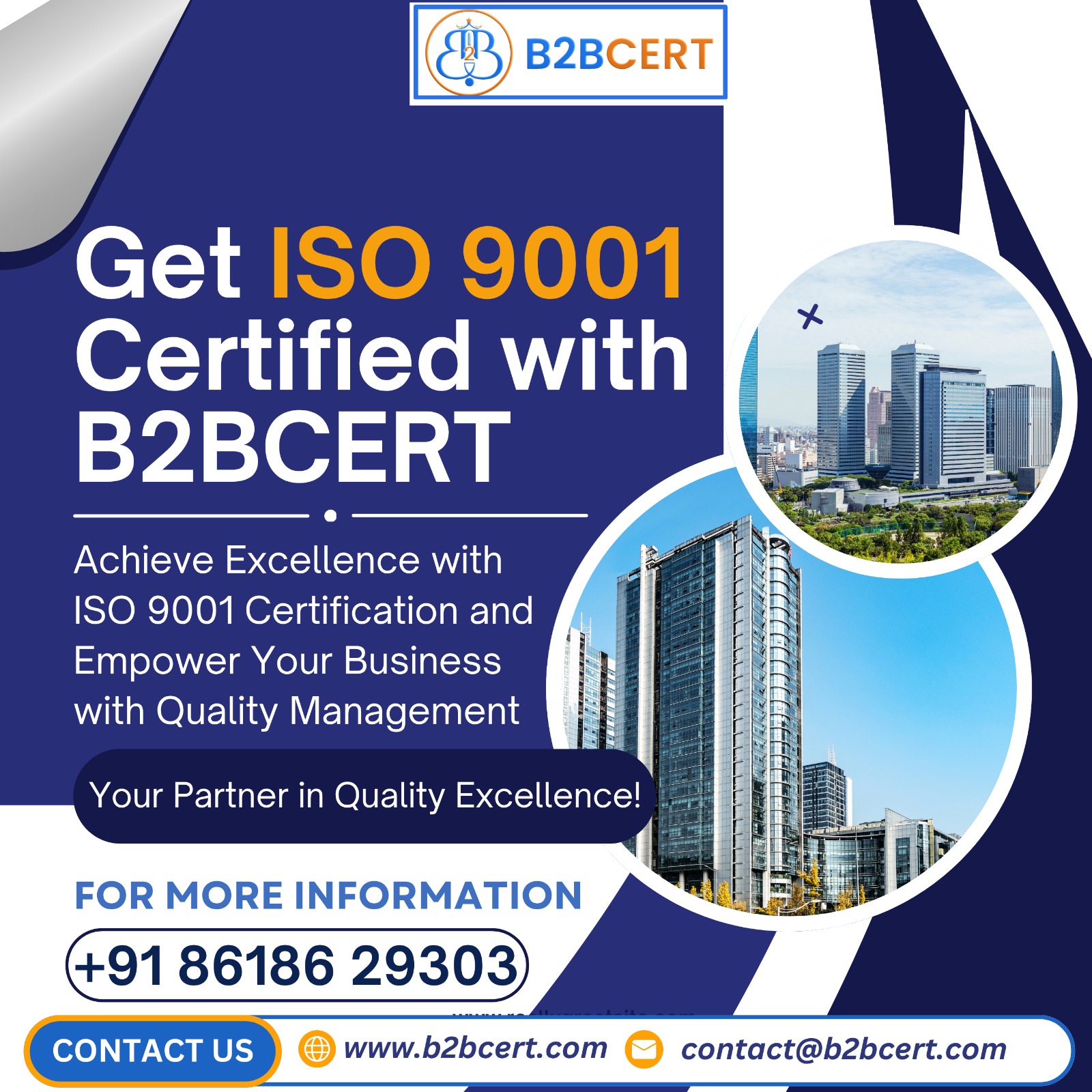In today’s competitive market, maintaining consistent quality is essential for long-term success. The ISO 9001 Quality Management System (QMS) provides a globally recognized framework that helps organizations enhance product and service quality while meeting customer and regulatory requirements. One of the key elements of ISO 9001 is the active involvement of top management. Their leadership sets the foundation for establishing, maintaining, and continually improving the quality management system.
If your organization is pursuing ISO 9001 Certification in Bangalore, understanding the responsibilities of top management is crucial. Let’s explore their key roles in ensuring a successful and sustainable QMS.
1. Establishing Leadership and Commitment
Top management holds the ultimate responsibility for demonstrating leadership and commitment toward the QMS. Their actions should reflect a strong focus on customer satisfaction, continual improvement, and compliance with ISO 9001 requirements.
Leaders must ensure that the quality policy and objectives are not just documented but also understood and applied across all levels. They should lead by example, promoting a quality-first culture that aligns with the organization’s strategic goals.
With the guidance of ISO 9001 Consultants in Bangalore, management can effectively translate this commitment into practical initiatives, ensuring the QMS is implemented efficiently and integrated into daily operations.
2. Defining the Quality Policy and Objectives
Developing a clear and meaningful quality policy is a cornerstone of ISO 9001. Top management must define a policy that aligns with the company’s purpose, direction, and commitment to meeting customer and regulatory requirements.
In addition, leaders should establish measurable quality objectives at relevant levels of the organization. These objectives should be SMART — Specific, Measurable, Achievable, Relevant, and Time-bound — to track progress and drive improvement.
Professional ISO 9001 Services in Bangalore can assist management in setting up realistic objectives that align with both operational efficiency and customer expectations.
3. Ensuring Customer Focus
A fundamental principle of ISO 9001 is customer satisfaction. Top management must ensure that customer requirements are understood, met, and exceeded wherever possible. This includes monitoring feedback, handling complaints effectively, and taking corrective actions to prevent recurrence.
Leaders should also analyze market trends, risks, and opportunities to continuously improve customer satisfaction levels. Maintaining open communication channels with clients and understanding their evolving needs is critical for long-term success.
By partnering with ISO 9001 Consultants in Bangalore, companies can develop customer-focused strategies that enhance trust and loyalty.
4. Providing Adequate Resources
An effective QMS requires adequate resources — both human and material. It is the responsibility of top management to ensure that the organization has sufficient manpower, infrastructure, training, and technology to support quality objectives.
They must identify competency gaps and provide necessary training to enhance employee skills and awareness of QMS processes. Empowering employees to take ownership of quality ensures better performance and long-term sustainability.
Utilizing ISO 9001 Services in Bangalore can help management in resource planning and optimization, ensuring that the QMS runs smoothly without unnecessary constraints.
5. Promoting Process Approach and Risk-Based Thinking
Top management must encourage a process-based approach, emphasizing the interconnection between different processes and their collective impact on achieving desired outcomes. This helps in improving efficiency, consistency, and traceability across all departments.
Additionally, ISO 9001:2015 emphasizes risk-based thinking, which enables organizations to identify, evaluate, and mitigate potential risks that could affect quality or customer satisfaction. Top management should actively participate in risk assessment, decision-making, and strategic planning.
ISO 9001 Consultants in Bangalore can provide valuable insights and tools to implement effective risk management strategies within the QMS framework.
6. Conducting Management Reviews
Periodic management reviews are essential to evaluate the effectiveness of the QMS. Top management must regularly review performance indicators, audit results, customer feedback, non-conformities, and corrective actions to identify opportunities for improvement.
These reviews help ensure that the QMS remains aligned with the organization’s strategic direction and adapts to changing market or regulatory conditions. Professional ISO 9001 Services in Bangalore can facilitate structured and insightful review sessions, ensuring data-driven decision-making.
7. Driving Continuous Improvement
Continuous improvement is the heart of ISO 9001. Top management must create a culture that encourages innovation, learning, and proactive problem-solving. They should motivate employees to contribute ideas for process enhancement and recognize achievements in quality performance.
Improvement can be achieved through internal audits, performance monitoring, root cause analysis, and customer satisfaction surveys. By leveraging ISO 9001 Certification in Bangalore, organizations can systematically track improvements and ensure measurable progress over time.
8. Ensuring Communication and Awareness
Effective communication is key to the success of any management system. Top management should ensure that all employees understand the importance of their roles in maintaining quality. They should communicate the quality policy, objectives, and performance results clearly across the organization.
Regular meetings, awareness programs, and internal newsletters can help keep everyone informed and aligned. Experienced ISO 9001 Consultants in Bangalore can assist in developing internal communication frameworks that strengthen engagement and accountability.
Conclusion
The success of an ISO 9001 Quality Management System depends largely on the commitment and leadership of top management. Their active involvement ensures that the organization maintains consistent quality, achieves customer satisfaction, and fosters continual improvement.
Whether you are a small business or a large enterprise, achieving ISO 9001 Certification in Bangalore requires a leadership-driven approach. With the expert support of ISO 9001 Consultants in Bangalore and professional ISO 9001 Services in Bangalore, organizations can establish a strong quality culture, streamline operations, and gain a competitive edge in today’s dynamic marketplace.


